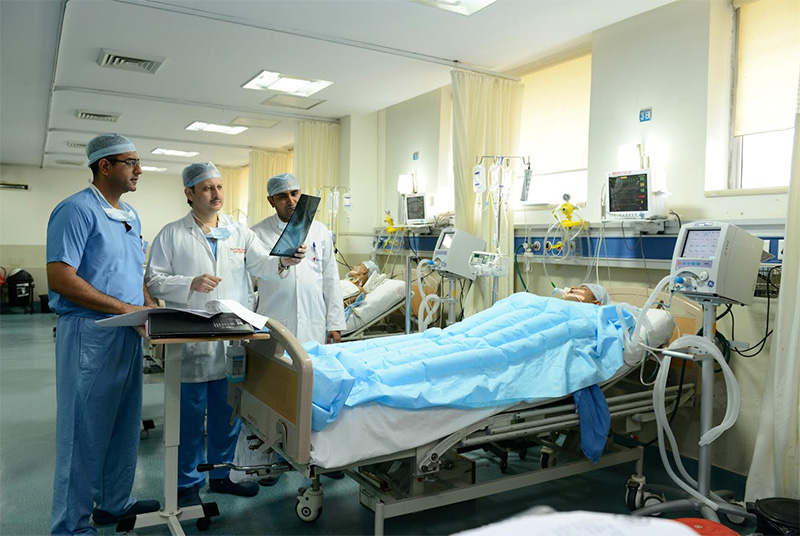Background
As a result of the current economic situation, the home country of the patient has curbed the grant of foreign exchange for medical treatment and education abroad. This has resulted in a processing slowdown in institutional framework too – it takes longer for organizations to organize healthcare trips abroad for their members/employees/employee-dependents.
Because of this many patients are forced to travel for treatment on their own, without letting the sponsoring organization know about it. This patient, employee of one of our client organizations, was being processed for spine treatment in India.
However, witnessing the delay, he moved on his own and routed his query to a hospital. He also chose to come unannounced and got admitted for spine treatment. His evaluation was done and he was advised surgery – that is when we received the distress call.
Surgery not required indeed
Surgery not required indeed We found merit in the patient’s claim that his home country doctor had told him – he would not need surgery; would benefit by rehabilitation treatment.
As part of our process, we had floated his reports to all hospitals in the same Indian city where he had travelled to – for his treatment. It would have been cruel to shift the patient to a hospital in a different city, as it would have entailed another avoidable travel.
Our panel hospitals confirmed the diagnosis of the home country doctor – that he would not need surgery but would benefit by rehabilitation treatment – sustained Rehabilitation and disciplined lifestyle to strengthen the muscles of the spine.
We discussed these reverts with the same Indian hospital where he had come for treatment and convinced the doctor about the need for rehabilitation therapy. This doctor now agreed to our suggestion.
The patient was made to undergo rehabilitation treatment for a period of 4 weeks on OPD basis. During this period he was taught the protocol of exercises and asked to continue the exercises while back in Nigeria. He was also prescribed medication for 6 months which he bought and took along. The patient was very relieved and very thankful and he returned to his home country quite satisfied.
Patient First – Our Credo
We used our panel of hospitals to provide multiple opinions to the original treating doctor – this helped the treating doctor conclude that surgery was not a solution. We harnessed our healthcare reach to create a “quasi-discussion board” to provide the treating doctor with an insight into what other doctors thought about the case. This ensured that the patient got the most appropriate treatment without changing the doctor or the hospital.
Putting patient first, we ensured that neither was the patient overcharged, nor was he overtreated. Because while over-pricing damages the pocket; overtreatment is far more dangerous – it has the potential to kill or debilitate.

